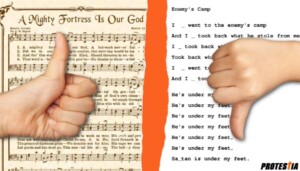
Song Review: Skillet’s O Come, O Come Emmanuel
It has been a hot minute since I have theologically examined a Christian song. And so far, I have focused only on songs written for and programmed into corporate worship, many of which, unfortunately, remain uncontroversial in otherwise relatively solid churches. This “review” will be a departure. Not in terms










